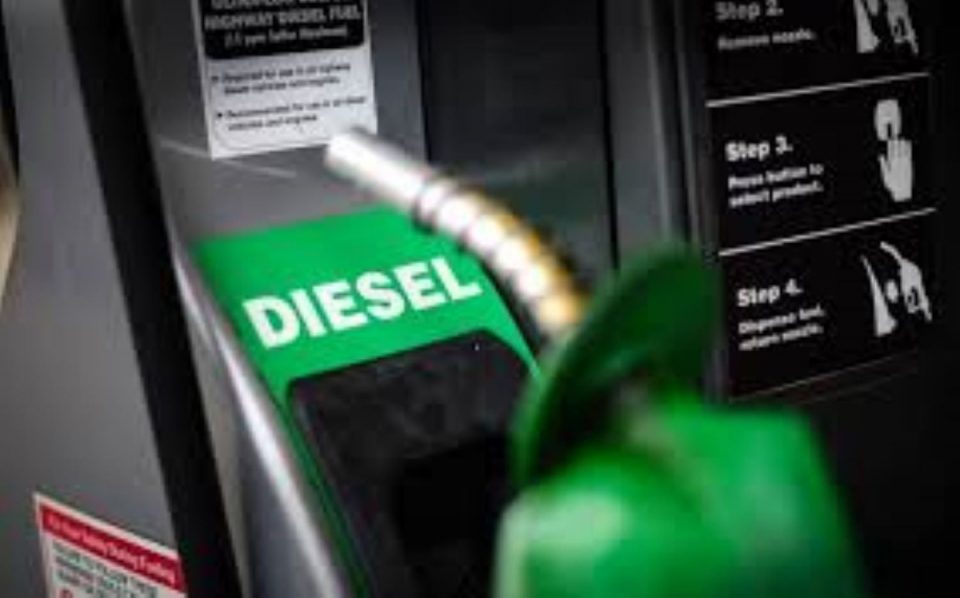Diesel price hits N950/litre, manufacturers fear shutdowns, job losses
Oil marketers, on Monday, said the foreign exchange crisis in Nigeria and the recent implementation of a 7.5 per cent Value Added Tax on Automotive Gas Oil, popularly called diesel, had pushed up the cost of the commodity to between N900 and N950/litre in many states.
The development has made local manufacturers say that the situation may lead to the closure of some factories and job losses.
Speaking under the aegis of the Natural Oil and Gas Suppliers Association of Nigeria at a press briefing in Abuja, the marketers explained that their inability to access the United States dollars was impeding their ability to import diesel.
The National President, NOGASA, Benneth Korie, told journalists that the cost of diesel was around N650/litre before the Federal Government introduced a 7.5 per cent VAT on the commodity.
On June 20, 2023, The PUNCH reported that the Federal Government had commenced the implementation of the payment of 7.5 per cent VAT on diesel.
Officials of the Nigeria Customs Service and Federal Inland Revenue Service had confirmed this in Abuja, stressing that AGO was not exempted from the payment of VAT based on the VAT Modification Order 2021.
Speaking at the press briefing on Monday, the NOGASA president said, “Diesel price is now approaching N900 to N950/litre depending on where you are buying it from. Before the introduction of VAT on diesel by the FIRS, diesel was around N650/litre.
“This increase in price is also due to the scarcity of the dollars. The government has to intervene in this dollar situation. All bank CEOs, Central Bank of Nigeria and others must meet to address this dollar issue. The way it is going, it will destroy a lot of things for us if it is not controlled.”
Korie also called on President Bola Tinubu to get Nigeria’s refineries working. He said the pressure by marketers and other importers on dollars would reduce when Nigeria’s refineries start to pump out refined products.
“Our refineries were built by human beings and can be fixed by human beings. I believe Nigerian engineers can fix these refineries, instead of us depending on imports. This is not sustainable.
“We are pilling pressure on the very limited dollars in the country by importing petroleum products and other commodities. But once our refineries start working, this pressure will drastically reduce. The government has to fix our refineries,” he stated.
The NOGASA president also decried the state of Nigerian roads, as he gave an instance with the Port Harcourt-Warri road, stressing that about 500 tankers were currently trapped on that road due to its abysmal nature.
“For two weeks now our tankers have been on that road; you can’t cross it. Our roads are bad, our trucks trapped on the Warri-Abuja road for two weeks, our drivers are kidnapped, killes, while others suffer.
“Some of the roads are blocked. If the government does not fix those roads, then petroleum products will stop coming to Abuja and other locations across the country,” Korie stated.
Meanwhile, reacting on the development, the Director-General of the Nigerian Textile Manufacturers Association, Hamma Kwajaffa, said several textile manufacturers were contemplating to shut down their operations owing to rising costs, largely caused by skyrocketing energy costs.
The DG said textile manufacturers could not afford to buy diesel at the projected price of _
He said, “Many are contemplating closing for now. We can’t meet up with that kind of amount. We have less than 24 textiles today, those who are working are contemplating closure. They have been pushed to the wall. These businesses are not in charity. They have to break even.
In the same vein, the Chief Executive Officer of Coleman Technical Industries Limited, George Onafowokan said increased diesel costs implied increased cost of production for the company.
He urged the government to find lasting solutions to the constant increase in diesel costs.
Onafowokan said, “Whenever the price of diesel goes up, it makes everybody’s cost go up. Logistics costs will go up for everybody, power costs will go up if diesel sells at N950.
“We are all in crisis. For most businesses in Nigeria, especially manufacturers, we are taking hits day in day out and sincerely, the government needs to do better not only in giving palliatives to the people, but for the businesses that are employing them, especially manufacturers.”




